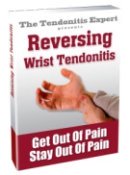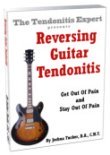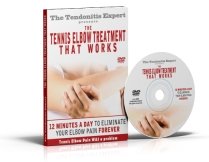Fencing With Carpal Tunnel
Fencing with Carpal Tunnel is a frightening prospect for serious fencers.
What if my carpal tunnel gets worse? Will continuing to fence give me permanent nerve damage?
More importantly, will I have to quit fencing because of the carpal tunnel?
Here's the good news: Fencing does NOT cause carpal tunnel.
Should You Avoid Fencing With Carpal Tunnel?
If you've spent any time at all on fencing forums, you'll see a common question from those that are fencing with carpal tunnel.
It sounds something like "Will my Carpal Tunnel get worse if I keep fencing?"
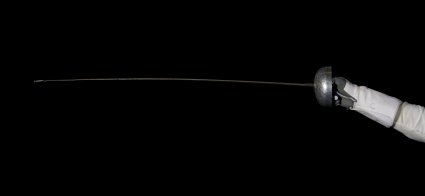
If that's all you do, the answer is 'YES'. It will get worse if you don't do anything to beneficially affect it.
Rest can't fix or cure carpal tunnel syndrome.
Nor can Anti-inflammatory drugs like Ibuprofen.
They can't, nor did they ever having a chance of fixing a carpal tunnel issue, no matter what your doctor says.
That's just not how Carpal Tunnel Syndrome works.
Each Carpal Tunnel Symptom happens for a very specific reason. It's useful to understand the how's and whys, so do follow that link.
Fencing with Carpal Tunnel and the Threat of 'Permanent' Nerve Damage
Part of people's worries include "The doctor told me I would have permanent nerve damage."
Doctors love that line. It's very persuasive to move people toward surgery.
Just today I read a story of an paralympic athlete that was hit by a car at 13 and paralyzed from the waist down, then recently at age 27 got hit by a bicyclist and got feeling in her legs and the ability to walk back. Now she's trying out for the olympics in bicycle racing, having taken Silver at the world championship race.
Doctors think that numbness and tingling equals permanent nerve death (or at least chronic numbness/tingling, and definitely 'nerve compression'. Clearly that's not the case. And I can give you plenty more examples. Point being, find out more about Nerve Damage.
Should you avoid fencing with
Carpal Tunnel?
No. Not in my opinion. You should fence as much as you want to. But you need to learn how to make carpal tunnel pain go away, and stay away.
I promise you that your carpel tunnel isn't going to go away all by it self.
Points don't score themselves. You have to make it happen. Self care is a necessary part of any sport.
You can completely reverse your Carpal Tunnel.
Fencing With Carpal Tunnel
How Fencers Get Carpal Tunnel
"I've been fencing for ten years, and I'm not as active as I was, why am I getting Carpal Tunnel Syndrome now?"
Fencing with carpal tunnel takes a lot of athletes out of the game. At best it slows them down, at worst it makes them quit the fencing sport that they love.
Carpal Tunnel Syndrome, like all Tendonitis, consists of a variety of different factors.
You fence. Maybe you fence a lot, maybe a little. Maybe you use epee or saber, who knows, maybe sometimes a claymore. It really doesn't matter. What matters is that now you're fencing with carpal tunnel syndrome.
You use muscles, and connective tissue. Muscle contraction has certain side effects.
Maybe your job requires you to use your body a certain way every day.
Fencing Does Not Cause Carpal Tunnel!
Just like computer work doesn't, or knitting, or any other hand intensive activity.
Don't get me wrong, fencing is a factor. The grip you use is a factor. Your form and technique and level of relaxation are all factors.
Fencers tend to focus on the kind of grip they use, and how they grip that grip.
Which is fine. But those are just factors. Changing a grip will not save you from a Carpal Tunnel Diagnosis. It may slow things down, or allow you to fence longer without pain and problem (see: ergonomics), but if you're getting pain and problem, in my humble opinion, focusing on any single factor isn't going to save the day.
How Do Fencers Get Carpal Tunnel?
1. Repetitive motion from fencing. Specifically, repetitive muscle contraction of the structures required to exert force.
2. When a muscle contracts, when it stops contracting it retains a certain amount of that contraction. Thus over time, muscles get set tighter and tighter.
3. Connective tissue shrinkwraps.
4. Various other small mechanisms con waste product and lactic acid from muscle metabolism are released into the tissue, increasing irritation.
5. The nervous system, which is always watching, at some point starts to worry and increases it's 'protective' defense mechanism. This is a critical part of the Pain Causing Dynamic.
6. A Process of Inflammation increases and increases, releasing chemicals which enhance your body's sensitivity to pain.
7. Inflammation Causes Vitamin B6 Deficiency. Tight muscles eat up Magnesium.
8. Repeat, ongoingly increasing each factor.
Fencing and The Carpal Tunnel Anatomy
Muscles in the forearm tighten, pulling tight on the tendons that run through the carpal tunnel. This pulls on all the connective tissue involved in, on, near, and around, and connected to all of that, and essentially causes compression.
Carpal Tunnel surgery attempts to 'release' the carpal tunnel by cutting away important ligament and connective tissue. But wrist release surgery does NOT help, reduce, nor reverse any of the above factors.
Fencing uses a high degree of forearm muscles for grip and movement control. Constant tension with quick bouts of contraction then puts a certain amount of compression at the carpal tunnel, which sends a danger signal to the nervous system.
But the carpal tunnel itself is NOT the issue. The issue is the factors that CAUSE compression of the carpal tunnel.
Numbness and tingling symptoms can come from up at the neck and front of chest/shoulder. All the above conversation regarding factors apply to this as well.
You have been trained to think that if something hurts in a particular spot, then the problem is at that spot. Unfortunately that is FAR from the truth.
Fencing With Carpal Tunnel
Without Pain Or Problem
"How can I fence without causing more wrist tendonitis?" "How can I fence more without making my carpal tunnel syndrome worse?"
I've said previously that fencing does not cause carpal tunnel.
8 hours of fencing does not cause carpal tunnel. But it does cause certain predictable results in the body.
NOT DOING ANYTHING TO COUNTERACT THE SIDE EFFECTS OF FENCING, THAT'S WHAT CAUSES CARPAL TUNNEL.
60 hours a week in front of a computer isn't a problem. It's the lack of doing anything else that causes problems over time.
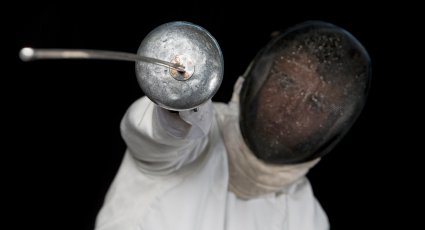
So. You love to fence. A lot. But you're currently fencing with carpal tunnel (which is sort of like dancing with a roll of barbed wire).
Well, you should fence more. Lots more.
But you also need to learn how to keep your body in a happy enough state that it can perform how you want it to perform without pain or problem.
Repetitive strain 'injuries' aren't really injuries. They're just the results of inadequate self care, inadequate knowledge.
Here Are Some Tips
Fencing with Carpal Tunnel is not a requirement. I certainly know that it's not your first choice.
Here are some fencers' tips on how to not only prevent carpal tunnel from fencing but also how to lower pain levels and have your body work better.
1. Learn How To Reduce Inflammation.
It's not a fix, but you might be surprised how effective this is for lowering pain levels and having your hands and forearms feel better. Remember, inflammation is an aspect that causes Trigger Finger and Trigger Thumb
Muscles eat magnesium (including your heart muscle). If you don't have enough magnesium in you, you WILL have/devolop muscle issues. Carpal Tunnel and Tendonitis ARE muscle issues.
Start with just that, and see what happens.
Return to the top of this Fencing With Carpal Tunnel page
Go to the main Carpal Tunnel Syndrome page.
Go to the main Tendonitis page.
Go to the www.TendonitisExpert.com page.
| Share Your Story
|
